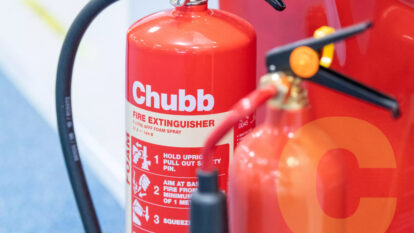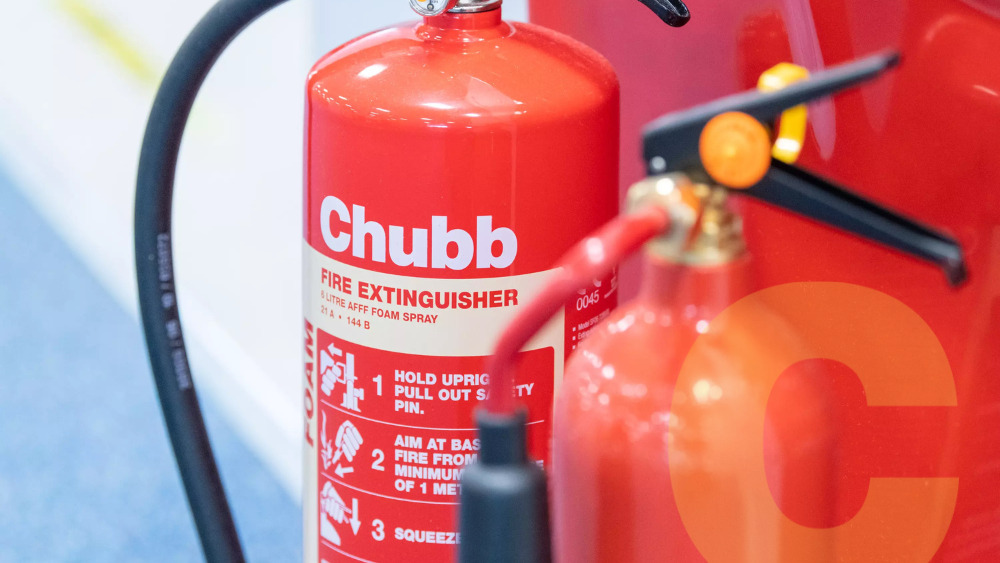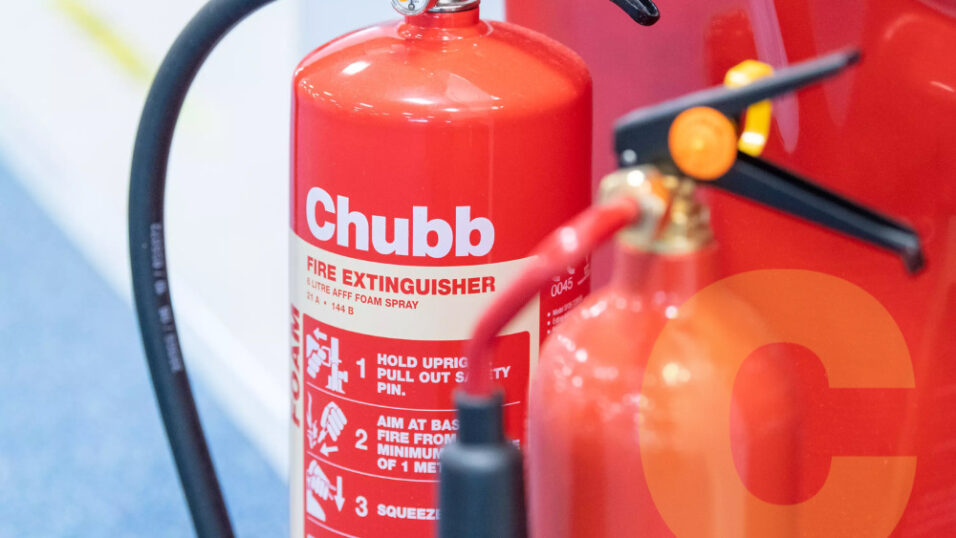



Changes to the extinguisher selection and positioning standard – lithium-ion battery fires
By Chubb | 3rd April 2024
On Thursday 30th November 2023, The British Standards Institution (BSI) introduced revisions to its BS 5306-8:2023 code of practice. The updated code has been provides detailed guidance on fire safety measures. It includes recommendations on the number and types of fire extinguishers required, along with optimal placement strategies to ensure effective fire prevention.
In our first two blogs, we discussed the use of water-based extinguishers on electrics and using powder extinguishers indoors.
In this blog, we’ll be discussing the new standard and lithium-ion battery fire.
A focus on lithium-ion battery fires
The new Standard, for the first time, turns our attention to fires involving lithium-ion batteries in individual small rechargeable devices such as laptops, mobile phones, e‑cigarettes and portable power tools and gives us some background to help us understand this.
The Standard warns us that these fires are unpredictable and can cause fire to spread significantly and that these devices usually fail through overcharging, modification, fault or damage. It is likely that a lithium-ion battery will burn out rather than be extinguished and ignite other materials.
If a battery gets hot and/or starts to let off gas, current research indicates that rapid cooling by water or water-based extinguishers, which are normally part of the existing coverage, is the best approach. As a result, it warns that if a device is on charge, it needs to be disconnected/isolated before any attempt is made to cool it down to protect the user.
The whole fire industry is developing products for battery fires, but there are no benchmark tests yet, so sellers are all making their own claims – none of which has any recognised foundation yet. Chubb is actively helping the design of those benchmark tests and hopes the next revision will incorporate a way to assign extinguishers with a lithium-ion rating to the workplace – for the benefit of us all.
It’s important to recognise that portable fire extinguishers will not extinguish a fire in a lithium-ion battery in anything larger than an e-scooter and will certainly not extinguish an Electric Vehicle (EV). An endless supply of water to cool a forklift battery could be provided by a Fire Hose Reel, of course, and maybe innovative extinguishers and fire blankets are the future. Only formal tests will prove if they are, which is why the focus is on those.
There’s plenty for us to ponder, but the new standard is the first to take a step into this world. We need to be careful with these batteries, make sure we buy from recognised manufacturers/retailers, use the correct charger and do not modify them in any way.
How we can help
Chubb provides a one-stop solution for all your fire safety needs. From reliable fire alarms and extinguishers to detailed evacuation plans and comprehensive risk assessments – we are the experts in managing workplace fire safety risk. This is why businesses and organisations nationwide continue to trust Chubb as their sole dedicated fire and security safety provider.
Contact one of our experts today – https://chubbfs.com/uk-en/products-solutions/fire/fire-extinguishers/
This blog is not an advertisement or advice document. It provides general information about a topic. You are responsible for complying with any legal or regulatory requirements that apply to you.
 Global network
Global network
